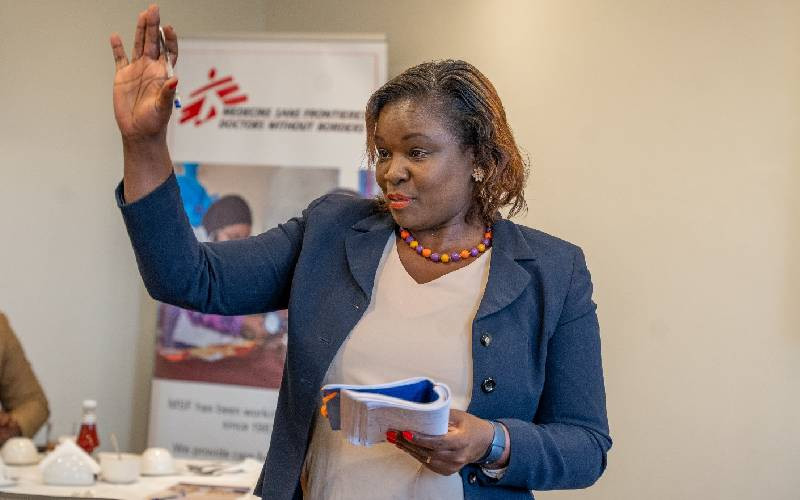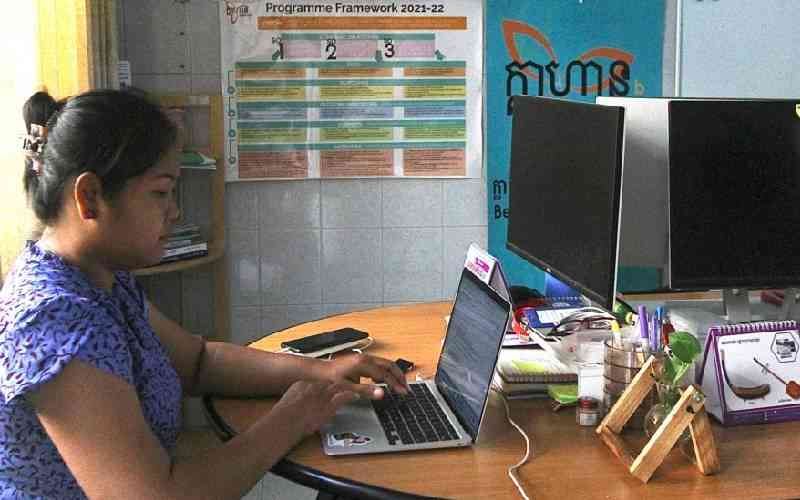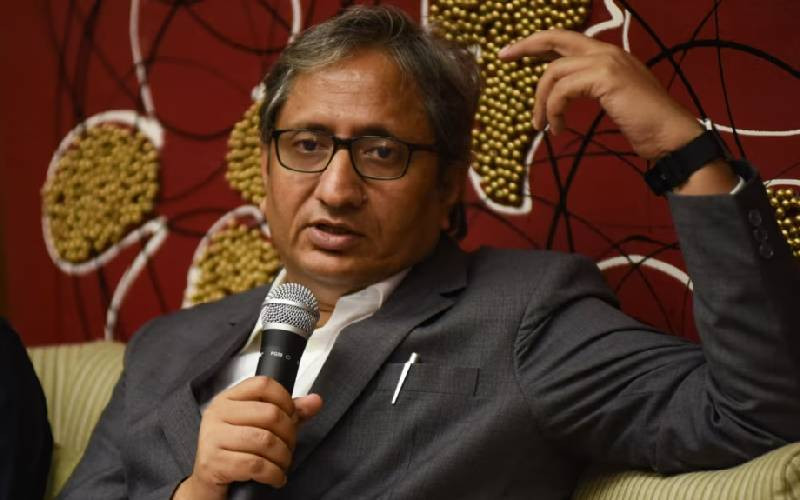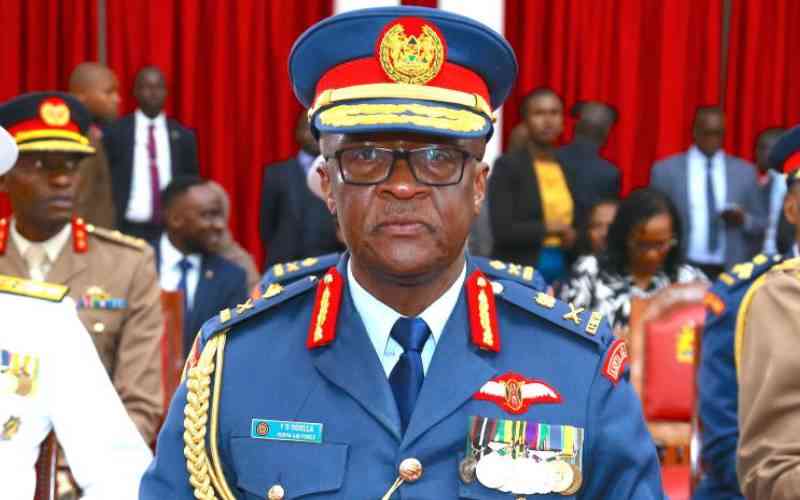Balanced and fair reportage must retain its place in Kenya. However, the explanation of the conduct of our media must be sought elsewhere, in the political life and situation of 5TH century Greece. Politics and democracy, like philosophy, was a Greek invention.
Never before, in the west, had there been a society in which ordinary men, lacking either inherited authority or divine sanction, openly debated and decided on vital matters as war and peace, public finance, or crime and punishment and free movement of information.
Political activity had become accepted not only as a legitimate activity but even as the highest form of social activity. And the defeat of the great Persian Empire in c460 proved that this new way of running society was effective and valuable. That it was a “new” way was recognized whereby free men organized their lives under the rule of law.
Therefore, like Greece, our country desperately needs laws that will guide or regulate members of Fourth Estate from regularly committing press related misdemeanours.
Kenya's journalism is in the throes of its most severe crisis in decades. A combination of censorship, unbridled partisanship and ineptitude are steadily eroding the gains that the local media realised over the past decade. Unlike in the years gone by, the prime threats to media freedom today are within the institution itself rather than from an overzealous government.
Ironically, the moment media is challenged for being unethical, it squeals for their ‘freedom’. What of the freedom of the individual citizenry?
In essence, the media attacks both democracy and individual freedom which was rightly hard fought for.
Kenyans paid with their blood for freedom. Most media practitioners have, over the years, earned a reputation for courage and integrity.
During the struggle for independence, scribes like the late Harry Thuku, Ramogi Achieng’ Oneko and Pio Gama Pinto pioneered “liberation journalism.” They transformed the nibs of their pens into lethal arsenals for liberation.
They refrained from pedantic discussions on personalities and focused on issues. Instead of peddling rumours; they championed and pursued truth, human dignity and equality. They exposed, challenged and fought against injustices-hence suffered repression.
Of late under ‘’media freedom’’, gutter journalism is consistently promoted, irrespective of the rights of individuals that are continually trampled on. It is also interesting to note that the same media no longer publishes educative articles written by independent and so-called ‘’dissident’’ scribes.
It is not coincidence that the media houses have decided to shun certain views and historical facts out and promote their own views only that later spur negative public debate. This is their interpretation of their ‘’media freedoms’’.
It poses a serious danger as history will never be reflected truthfully, but in a distorted fashion. Indeed, drama and sensationalism, character assassination, the misrepresentation of facts, tendentious reportage and trampling on individual rights are protected under the guise of ‘media freedoms’ in Kenya.
The conduct of our media and its support structures is embarrassing.
The current talk show on our FM stations and even music played on TVs are pure manifestation of a decaying media in this society. Our media has performed dismally to self-regulate itself through its own Media Council of Kenya. Similarly, it has allowed, if not helped, tendentious gutter journalism to flourish.
Stay informed. Subscribe to our newsletter
It has indeed overplayed its hand by destroying lives willy-nilly but when corrected, the Fourth Estate squeals. In established democracies like US or in Athens, the cradle of Western democracy correction is made to ensure spur growth of democracy.
It is a natural process and such nations have bills that ensure protection of state information that address these ills and the elected state carries the responsibility to protect it masses and treat them fairly.
Kenya needs such measures that will assent to what goes on air or if it requires to be edited more. That will serve as the ‘code of fair information practices’ the consequence of those who do not respect or uphold such a code will be punishment.
The time for peddling perceptions as facts, of character assassinations, or power lobbying would seem to be short-lived. A strong body to check media and its operation is chiefly unavoidable to guarantee fair play and responsible reportage. State security matters will be protected too.
Fortunately, we have a vibrant civil society with different agendas and highly politicized citizens. Should the government use the bill in a manner that would trample or infringe the right of the people; obviously it will meet stiff resistance from our vibrant civil society and the enlightened citizenry. The bill protects the right of every citizen.
But the problem with our media is that its ownership is concentrated in the hands of a few barons with very serious cross-shareholdings. The country’s few media conglomerates have always made it too difficult for any media to succeed.
However, if government is to be valued because it is accountable to the people, free and independent news media are essential to that process.
The culture of fanning hatred among supporters of various politicians is barbaric. Our dailies of late pen headlines that precipitate incitement in Kenya. It sells commercials, I suppose. The question is:
How do these wild assertions pass the fact checkers, the copy editors, and the editors of our press?
Okwaro Oscar Plato is an analyst with Gravio Africa Consulting. The views are his own.
 The Standard Group Plc is a
multi-media organization with investments in media platforms spanning newspaper
print operations, television, radio broadcasting, digital and online services. The
Standard Group is recognized as a leading multi-media house in Kenya with a key
influence in matters of national and international interest.
The Standard Group Plc is a
multi-media organization with investments in media platforms spanning newspaper
print operations, television, radio broadcasting, digital and online services. The
Standard Group is recognized as a leading multi-media house in Kenya with a key
influence in matters of national and international interest.
 The Standard Group Plc is a
multi-media organization with investments in media platforms spanning newspaper
print operations, television, radio broadcasting, digital and online services. The
Standard Group is recognized as a leading multi-media house in Kenya with a key
influence in matters of national and international interest.
The Standard Group Plc is a
multi-media organization with investments in media platforms spanning newspaper
print operations, television, radio broadcasting, digital and online services. The
Standard Group is recognized as a leading multi-media house in Kenya with a key
influence in matters of national and international interest.








